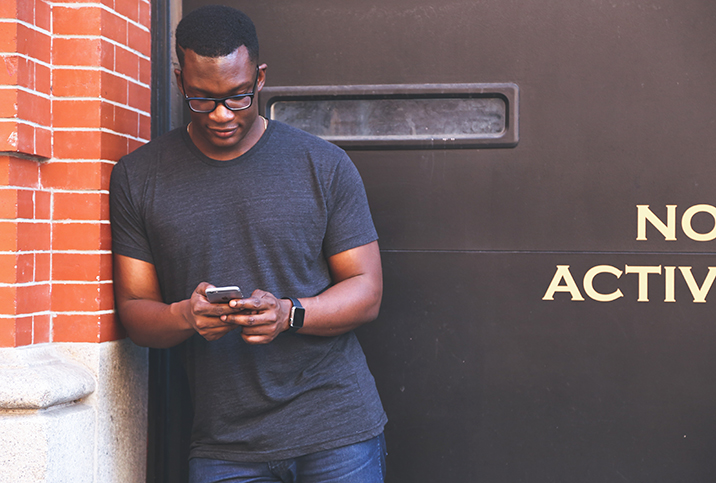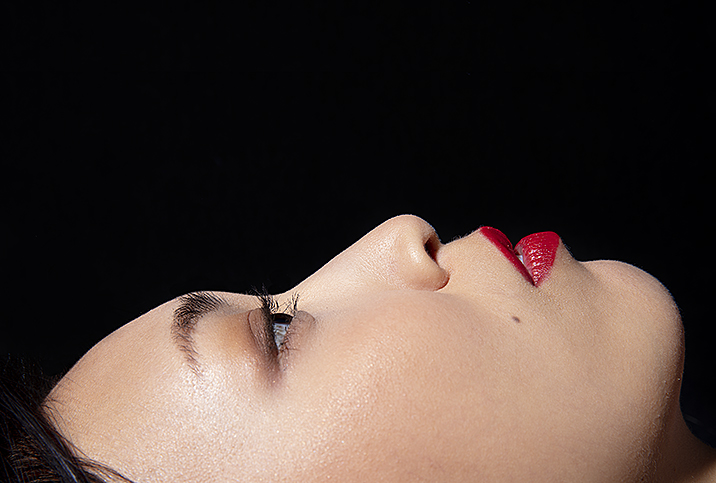Anxiety and Your Sex Life: A Link to Libido

A recent SingleCare study found that 62 percent of Americans suffer from some degree of anxiety. That’s a lot of stress. And all too often, its impact is felt directly where you want it least: your sex life and, subsequently, your relationship(s).
So the question is, can you control your anxiety and regain control of your sex life? Absolutely, you can.
What is anxiety?
Anxiety is that general feeling of unease you’ve probably experienced from time to time, often arising from circumstances that might be out of your control. For example, you might have been anxious about an exam at school or deadline at work, speaking in front of a crowd, or meeting your partner’s family.
This is a normal human reaction. But for countless men and women, and even children, anxiety can quickly spiral out of control, and that can have a hugely debilitating impact on daily life. Anxiety is the most common emotional disorder and has many diagnosable forms: social anxiety, phobias, panic disorder, OCD, separation anxiety and PTSD.
Do I have anxiety?
Anxiety can affect anyone at any age, but it’s more common in women. Risk factors include traumas, chronic illness, personality, family history, drug use and other mental health disorders. Often, though, causes may be difficult to pinpoint. Anxiety is also associated with numerous medical and psychological conditions, including headaches, gastrointestinal issues, depression, social isolation and suicidal thoughts.
You may be struggling with a chronic anxiety issue if you have feelings of constant worry out of proportion to its stimulus. Anxiety may manifest as an inability to concentrate, rapid breathing, nervousness, restlessness, sweating, trembling, insomnia, fatigue, a sense of impending danger, avoidance of people and situations, and more. Everyone experiences anxiety differently.
How anxiety could impact your sex life
Anxiety commonly affects our interest in sex, because it increases levels of the stress hormone cortisol in the body. While it’s great for our instinctive fight-or-flight response, it negatively impacts desire.
The statistics from studies conducted in different countries and at different times are convincing. Seventy-five percent of patients with panic disorder, 39 percent of women with OCD and 30 percent with social phobia have experienced some form of sexual dysfunction. In addition, up to 69 percent of male combat veterans with PTSD have experienced erectile dysfunction.
The chances are that if anxiety is affecting your daily life, it’s also affecting your sex life. That can cause even more stress if you worry that your partner may be frustrated or dissatisfied, turning the situation into a vicious anxiety cycle.
When it comes to treatment, anti-anxiety and antidepressant medications such as selective serotonin reuptake inhibitors (SSRIs) can decrease libido. These meds are effective treatments due to their calming effect, but the subsequent increase in serotonin blocks communication between sex hormones and your brain. In other words, your hormones are telling you it’s time to get busy, but your brain isn’t picking up what the chemicals are putting down.
SSRIs can also reduce natural lubrication for women and make it difficult to orgasm.
Take back control
The good news is there are many ways you can manage anxiety and get your sex life back on track. It may sound obvious, but try to identify triggers for emotions and scenarios that cause or exacerbate anxiety. A therapist can help you both with the identification of triggers and strategies to help you cope with them.
You may also want to consider practicing mindful meditation and other anxiety-relieving techniques to help you keep calm. Again, speaking with a professional can be incredibly beneficial. There’s no shame in seeking help from an expert who can provide counseling, cognitive behavioral therapy, and medication options or adjustments when appropriate. For example, adding an antidepressant such as Wellbutrin can help counteract the libido-destroying effects of SSRIs, but this is not something you would embark on without the appropriate medical advice.
You should also talk to your partner or partners about everything you’re feeling and going through. They may be taking your disinterest in sex personally, and the last thing you need is to add that to your list of things to worry about.
Look into the many ways people just like you control their anxiety: yoga, meditation, exercise, support groups, apps. (Calm is a great one.) You should also consider some dedicated self-care time—think warm baths, soft music, cat naps, healthy meals and basically anything else that brings you joy. Doing so can limit the number of factors causing you stress, and may reduce your anxiety enough to better your chances of getting in the mood.
Anxiety can wreak havoc on every aspect of life, but by incorporating strategic treatment methods—alone, with your partner(s) and/or with professional help—you can make great strides in getting everything back on track, and back into the bedroom.


















